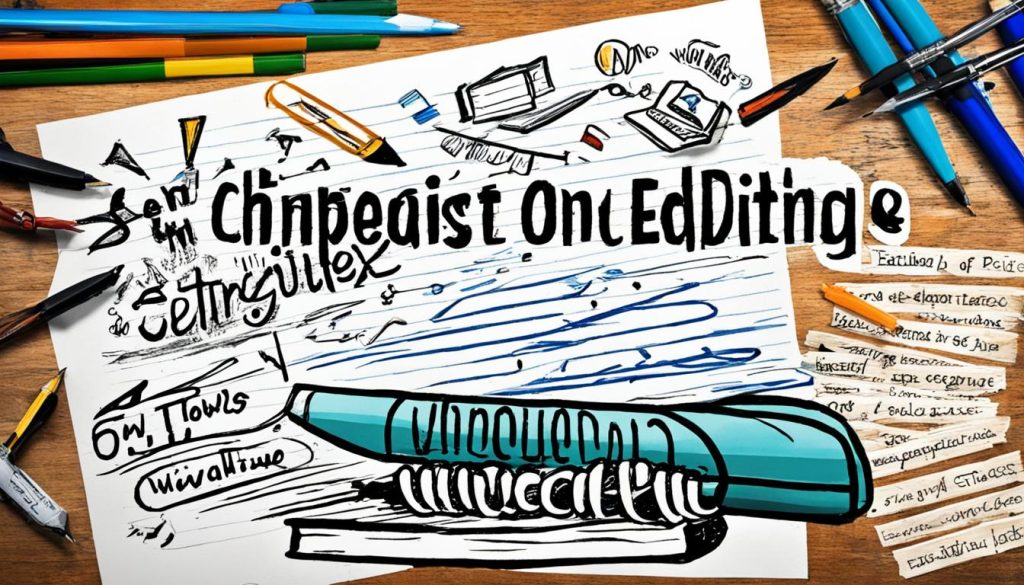Are you a blogger struggling to come up with fresh ideas and engaging content? You’re not alone – writer’s block is a common challenge that even the most seasoned writers face. But what if I told you that over 80% of professional writers experience writer’s block at some point in their careers? The good news is, there are proven strategies to overcome this obstacle and reignite your creative spark.
In this comprehensive guide, we’ll dive into the root causes of writer’s block and uncover practical, actionable solutions to help you overcome writer’s block in blogging and elevate your content creation process. Get ready to bid farewell to the dreaded blinking cursor and reclaim your writing flow!
What Is Writer’s Block? Something All Writers Need to Know…
Writer’s block is a challenge many writers face, but it’s more complex than it seems. Understanding its root causes is crucial to beat it and write better.
Many think writer’s block is just for writers, but it’s not. It’s a sign of deeper issues like fear, procrastination, and perfectionism. These problems can stop writers and others from doing their best work.
Identifying Writer’s Block Challenges
To beat writer’s block, know what’s holding you back. Are you scared of failure or criticism? Do you put off starting or finishing projects? Or are you too focused on being perfect?
Recognizing these issues helps you find ways to overcome writer’s block. It’s not about finding a quick fix. It’s about understanding yourself and how to handle your unique challenges.
| Common Causes of Writer’s Block | Impact on Writing |
|---|---|
| Fear | Paralyzes the writing process, leading to self-doubt and avoidance |
| Procrastination | Delays the start of writing, causing a domino effect of missed deadlines and unfinished projects |
| Perfectionism | Hinders the flow of ideas and creates a constant struggle to achieve an unattainable standard |
| Distractions | Interrupts the writing process, making it difficult to maintain focus and productivity |
Knowing the root causes of writer’s block helps you tackle your writing challenges. This knowledge lets you create strategies to improve your writing and succeed.
Overcoming Writer’s Block: Confronting the 4 Real Causes
Writer’s block can really slow down a creative person. But, by tackling the root causes, you can beat it and get back to writing.
The main reasons for writer’s block are fear, putting things off, wanting everything to be perfect, and getting sidetracked. Let’s look at each one and see how to beat them.
Fear: The Double-Edged Sword
Fear can push you to do great things, but it can also stop you in your tracks. Face your fears and let them drive your hard work. Remember, fearing failure is normal, but don’t let it stop you from trying new things and writing.
Procrastination: Scheduling and Goal-Setting
Procrastination often stops writers in their tracks. But, you can beat it by having a regular writing schedule and setting daily goals. Set aside days for doing less productive things, then come back to your writing with fresh eyes.
| Cause | Strategy |
|---|---|
| Fear | Embrace the fear and use it to motivate your hard work |
| Procrastination | Schedule procrastination days and set daily page goals |
| Perfectionism | Separate writing from editing to boost productivity |
| Distractions | Establish a strict writing schedule and minimize distractions |
By tackling these four main causes of writer’s block, you can improve your writing process. Stay focused, set realistic goals, and try different methods until you find what works for you.
Cause #1: Fear
As a writer, fear can be a big obstacle. The competition is tough, and success seems hard to achieve. But, it’s key to see that fear is real and can help you beat writer’s block.
Fear makes you see your limits and the challenges ahead. Don’t let it stop you. Use it to push yourself harder and aim higher. Facing your fears can turn them into a force that moves you forward.
Embrace Your Fears and Let Them Motivate You
Don’t let fear stop you. Use it to make your writing better. Notice where you feel unsure or insecure. Then, make a plan to improve. This might mean getting feedback, learning more, or practicing more.
- Recognize that fear is a natural response to the competitive writing world.
- Use fear as a reminder to keep improving your writing skills.
- Find ways to beat fear, like setting goals and celebrating your wins.
- Embrace the fear and let it drive you to write better.
By confronting your fear and using it to your advantage, you can tap into new creativity and productivity. Remember, fear isn’t your enemy. It’s a tool to help you write better and beat writer’s block.
Cause #2: Procrastination
Many writers struggle with procrastination. Instead of trying to stop it, learn to manage it in your writing plan. Seeing procrastination as part of creativity helps you work with it, not against it.
Schedule Procrastination Days
Managing procrastination means setting aside “procrastination days” in your schedule. These days let you take a break from writing to read, relax, or enjoy hobbies. This way, you keep procrastination from ruining your productivity.
Manage Your Daily Page Goals
Another good idea is to adjust your daily writing goals to fit in procrastination. Don’t aim too high. Break your writing into smaller daily tasks. This lets you still move forward, even on days you don’t write much.
| Task | Daily Goal | Procrastination Day |
|---|---|---|
| Writing | 2 pages | 0 pages |
| Editing | 1 page | 0 pages |
| Research | 1 hour | 0 hours |
By accepting procrastination as part of writing, you can beat writer’s block. This approach helps you keep a steady and productive writing flow.

Cause #3: Perfectionism
Perfectionism can be both good and bad for writers. It helps polish your work during editing. But, it can stop you from writing in the first place. Many writers struggle with this.
To beat this, separate your writing from editing. Write without worrying about being perfect, then edit later. This way, you can keep creating without getting stuck.
- Embrace the imperfections: Remember, your first draft doesn’t have to be perfect. Write freely, knowing you can make it better later.
- Set realistic expectations: Don’t expect too much from your first draft. It’s just the start, and editing is where the magic happens.
- Focus on progress, not perfection: Celebrate your small wins, not just the big ones. This helps you stay motivated without getting overwhelmed.
By writing without editing pressure and being more flexible, you can beat perfectionism as a cause of writer’s block. This will help you tap into your full creative potential.
| Separating Writing from Editing | Benefits |
|---|---|
| Write freely without constraints | Encourages creativity and prevents writer’s block |
| Revisit work during editing stage | Allows for polishing and refinement without stifling the initial flow |
| Embrace imperfections in the first draft | Reduces pressure and promotes a more relaxed, productive writing process |
Separate Writing from Editing to Boost Productivity
As a writer, it’s key to know how important it is to keep writing and editing separate. This simple trick can really boost your writing productivity and make your work better.
The brain works in two main modes: diffuse and focused. The diffuse mode helps with creativity and ideas. The focused mode is for detailed analysis and fine-tuning. By separating writing and editing, you use these modes better and reach your best potential.
Editing while writing makes you switch between these modes a lot. This can be tiring and slow down your creative process. Instead, let your writing just flow. Don’t judge or change it right away. This lets your ideas grow and get better before you start editing.
Professional writers do this to let their work develop freely. Amateur writers often edit as they go, which can stop their creative flow and lower their productivity.
By separating writing and editing, you can:
- Enhance your mental well-being by reducing stress and anxiety associated with constant self-criticism
- Increase your job opportunities and earning potential as a skilled, productive writer
- Improve your learning outcomes and overall academic or professional performance
The main idea is to use this simple yet powerful method. Let your writing grow first, then focus on editing. This way, you can really unlock your writing potential and increase your productivity.

| Separating Writing and Editing | Mixing Writing and Editing |
|---|---|
| Improved mental health and reduced stress | Increased stress and anxiety |
| Enhanced job opportunities and earning potential | Limited job prospects and earning potential |
| Better learning outcomes and academic/professional performance | Suboptimal learning outcomes and performance |
Cause #4: Distractions
Distractions are a big reason for writer’s block today. We’re always hit with notifications and social media, making it hard to focus. To beat this, setting a strict writing routine and cutting out distractions is key.
Establish a Distraction-Free Environment
To fight distractions as a cause of writer’s block, make a space just for writing. Turn off your phone and close tabs you don’t need. Tell your family and friends you’re not to be bothered during this time. This establishing a writing routine keeps you focused and creative.
Try the Pomodoro Technique too. Work for 25 minutes, then take a break. This keeps distractions away during your writing.
It’s not just about outside distractions. Managing your own urges to check social media is important too. Staying disciplined and focused helps you beat distractions and reach your writing goals.
| Tips for Avoiding Distractions | Benefits of a Distraction-Free Environment |
|---|---|
|
|
Overcoming writer’s block in blogging: A Writer’s Block App Recommendation
As a blogger, you’ve faced the frustration of writer’s block. That moment when words won’t come, and your creativity dries up. But, there’s a tool that can help you beat this and increase your writing.
Meet Freedom, a tool made to block distractions and keep you focused. This writer’s block app lets you set writing times and block distracting websites and notifications. It creates a space free from distractions that can help your blogging productivity.
With Freedom, you can:
- Block digital distractions and stick to your writing goals
- Choose which websites and apps to block based on your needs
- Improve your focus and increase your writing productivity
In today’s world, where distractions are everywhere, Freedom can be a big help for bloggers with writer’s block. Try it out and see how it can help you get past your creative hurdles and write great content for your readers.
Overcoming writer’s block is a journey, and the right writer’s block app can be a big help. Use focus to your advantage and watch your blogging success grow.

More Strategies to Defeat the Dreaded Writer’s Block
Writer’s block can feel overwhelming, but you can beat it with the right strategies. We’ve talked about some methods already. Here are more ways to help you get past writer’s block.
Embrace Daily Writing Habits
Writing every day is a great way to beat writer’s block. Set a goal for the number of words or pages you’ll write each day. It doesn’t matter if it’s not perfect. Sticking to it helps you keep moving forward and get past any hurdles.
Adjust Your Expectations
Not every writing session will be perfect. Sometimes, you might feel stuck or can’t find the right words. Be gentle with yourself and lower your expectations. Focus on making progress, even if it’s small.
Experiment with Writing Techniques
Trying new writing techniques can help you break through creative blocks. You can try freewriting, mind mapping, or writing prompts. Experimenting can open up new ways to share your ideas.
Take Breaks and Recharge
Remember to take breaks and recharge. Taking time off from writing can give you a fresh view and spark inspiration. Go for a walk, read a book, or do something you love. This helps your mind rest and get ready to create again.
Adding these strategies to your writing routine can help you beat writer’s block. Be patient, try new things, and never give up. With persistence, you can unlock your full creative potential.
The Power of Setting Clear Deadlines
As a writer, learning to set writing deadlines can change your game. Clear and realistic deadlines help you manage your writing projects and fight procrastination. This is key for even the most experienced writers.
Setting deadlines adds urgency and focus to your writing. Having a goal makes you stay on track, prioritize tasks, and overcome obstacles. This is great for those who often get sidetracked or struggle with procrastination.
- Establish realistic, achievable deadlines: Don’t set deadlines that are too high or too low. Assess your workload, habits, and commitments. Then, set deadlines that challenge you but are doable.
- Break down larger projects into smaller, manageable tasks: Instead of facing a big project all at once, break it into smaller steps. This makes the work less scary and lets you celebrate your wins.
- Incorporate regular check-ins and adjustments: Check your progress often and adjust deadlines if needed. Life changes, and staying flexible is key.
Using setting writing deadlines boosts your writing project management skills. It also brings more productivity and satisfaction. So, challenge yourself with deadlines – they might help you beat writer’s block and discover your creative potential.
Making Brainstorming More Sensory and Engaging
Writer’s block can be tough to beat. A fresh approach to brainstorming can help. By using more senses, you can find new ideas and boost your creativity.
Unleash Creativity with Visual Tools
Use visual aids in your brainstorming. Make a mood board with images and colors that inspire you. Place these on a canvas to visualize your ideas. This can spark creativity and show new connections.
Harness the Power of Music
Music can also help during brainstorming. Pick songs that match the mood you want. Upbeat tunes can make you more excited, while calm music can focus your mind. Try different music to see what works for you.
Engage Your Body and Senses
Adding physical activities to brainstorming can be helpful. Write ideas on a whiteboard or make mind maps with objects. Even going for a walk can spark new insights.
By making brainstorming more sensory, you can boost your creativity and beat writer’s block. Try out visual tools, music, and physical activities to see what works for you.
| Sensory Brainstorming Techniques | Benefits |
|---|---|
| Visual Tools (Mood Boards, Mind Maps) | Stimulate creativity, uncover hidden connections |
| Music and Sound | Set the tone, boost enthusiasm or focus |
| Physical Activities (Scribbling, Arranging Objects) | Engage the senses, think outside the digital realm |
Read, Read, Read to Find Inspiration
As writers, we often face a blank page, struggling to start writing. But reading might be the key to breaking through writer’s block. By diving into the works of other writers, you can find new ideas and fresh perspectives. This can help spark your own creativity.
Reading isn’t just about keeping up with the latest in your genre. It’s about exploring different literary styles and themes. Whether you check out new bestsellers or revisit classics, you’ll find a lot of inspiration and insights.
By reading a lot, you keep up with trends and learn new ways to express yourself. You can try out different narrative structures and vivid imagery. This opens up endless possibilities for finding new inspiration.
So, if you’re stuck, don’t hesitate to read a book. Let the words take you to new places. You might find the perfect idea to overcome your writer’s block and elevate your writing.

Remember, the key to finding inspiration through reading is to keep an open mind. Be ready to explore and let others’ words guide you in your creative journey.
Try a New Writing Method or Medium
As writers, we often get stuck and struggle to break free from our usual ways. Trying new writing methods or mediums can help unlock your creativity and beat writer’s blocks.
Don’t be afraid to try something new. You could write by hand, use a typewriter, or dictate your thoughts. These new approaches can spark inspiration and help you express your ideas in fresh ways.
Writing for different platforms or formats can also help. Try writing a short story, a poem, or a script. This change can make you think differently and see your writing from a new angle.
- Write by hand: Grab a pen and a notebook and let your thoughts flow freely onto the page. The tactile experience of writing can spark new ideas and help you connect with your writing in a more visceral way.
- Try a typewriter: The rhythmic tapping of the keys and the satisfying clack of the return lever can infuse your writing with a sense of old-world charm and help you focus on the task at hand.
- Dictate your thoughts: Use a voice recorder or a speech-to-text app to capture your ideas as you speak them out loud. This can be especially useful for those who find typing to be a barrier to their creative flow.
Remember, the key to overcoming creative blocks is to experiment with writing methods and explore new mediums. By stepping out of your comfort zone and embracing the unknown, you just might discover new ways of overcoming creative blocks and taking your writing to the next level.
Avoid Comparing Yourself to Others
As writers, it’s easy to compare ourselves to others in the industry. We see our peers’ success and wonder why our writing doesn’t have the same impact. But, it’s key to avoid comparing and embrace our unique voice. This helps us overcome self-doubt and reach our full potential.
Every writer has a special voice and view to share. What works for one may not work for you. Instead of getting down about others’ success, work on improving your own skills. Celebrate what makes your writing stand out and let that motivate you to keep getting better.
- Don’t compare your “behind-the-scenes” to others’ “highlight reels”.
- Remember, your journey is unique, and success looks different for everyone.
- Be around a supportive group of writers who encourage and give honest feedback.
By embracing your unique voice and avoiding comparison, you’ll beat self-doubt. You’ll focus on what’s important: improving your craft, connecting with readers, and enjoying writing. Your voice is precious, and the world needs to hear it.

Don’t Forget to Actually Live Your Life
As writers, it’s easy to get lost in writing. But the best writing comes from real-life experiences, not just writing itself. Finding a balance between writing and living is key. Your life experiences can give you valuable inspiration and help you beat writer’s block.
Stepping back from writing and diving into life can unlock new ideas. Finding inspiration through life experiences can make your work fresh and exciting. It helps you achieve the balance between writing and living many writers aim for.
- Engage in activities, relationships, and adventures outside of your writing practice.
- Seek out new experiences and perspectives that can challenge your assumptions and broaden your horizons.
- Embrace the unexpected and allow your life experiences to shape and inform your writing in unexpected ways.
The best stories and insights come from everyday life. By leaving your desk and exploring the world, you can find inspiration. This can help you unlock your full creative potential.
| Benefits of Balancing Writing and Living | Potential Drawbacks of Neglecting Life Experiences |
|---|---|
|
|
Embracing life experiences can unlock new creativity and inspire you to beat writer’s block. So, take a break from your desk, explore the world, and let your life stories enrich your writing.
Take Your Writing to New Heights with Education
As a writer, your journey of growth and improvement is never-ending. Pursuing further education, like a Master of Arts in Writing program, can help you improve. These programs offer the tools, guidance, and community you need to enhance your writing skills and beat writer’s block.
Enrolling in a graduate-level writing program lets you learn from experts, work with talented peers, and explore various writing styles. This experience can open new perspectives, teach you new techniques, and boost your confidence in your writing.
Whether you’re into fiction, poetry, creative nonfiction, or professional writing, a dedicated program can help you grow. You’ll learn about language, try out different forms, and get feedback from experienced writers and editors. Imagine how much you’ll improve as you dive into these areas.

